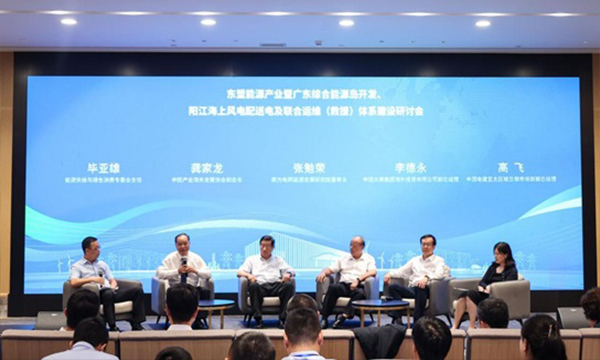中国,北京
2015年10月31日
一、第二十一次“基础四国”气候变化部长级会议于2015年10月30—31日在北京举行。中国气候变化事务特别代表解振华阁下、巴西环境部长伊萨贝拉·特谢拉阁下、印度环境森林与气候变化部部长普拉卡什·贾瓦德卡尔阁下、南非环境事务部副司长朱迪·博蒙特女士作为南非环境事务部长莫莱瓦阁下的代表出席了会议。中国国务院副总理张高丽阁下于2015年10月30日会见了“基础四国”的代表。
二、部长们全面分析了当前的气候变化政治形势,表达了将通过一个透明、全面和缔约方驱动的进程推动巴黎气候变化会议取得成功的坚定决心。考虑到所剩的谈判时间有限,部长们强调各方应以2015年10月23日修改后的非正式文件为基础加速案文谈判。
三、“基础四国”部长们重申他们将致力于与其他缔约方一道在所有问题上建设性地开展工作,达成一个在《联合国气候变化框架公约》(以下简称公约)下的公平、有力度、全面、平衡和持久的巴黎协议,加强公约全面、有效和持续实施,以实现公约第二条所述目标,而不是建立一个有别于公约的体制。巴黎协议应完全遵循公约的原则和规定,特别是公平原则、共同但有区别的责任原则和各自能力原则。发达国家和发展中国家的区分应当反映在协议的每一个要素中。
四、部长们重申, 巴黎协议须平衡处理德班授权确定的减缓、适应、资金、技术开发和转让、能力建设以及行动和支持透明度等核心要素。
五、部长们强调通过加强减缓、适应及针对减缓和适应的实施手段将全球平均温升控制在工业革命前水平2℃以内的重要性。
六、部长们认为巴黎协议应根据公约第4条要求缔约方定期准备、通报和实施其强化承诺和行动。努力应体现缔约方超越现有承诺的进展。
七、部长们进一步强调贡献应由国家自主决定,且应全面包括减缓、适应及发达国家向发展中国家提供的支持。部长们同时重申力度和持续进展应同时涵盖行动和支持。
八、部长们重申发达国家必须在2020年后发挥带头作用,承诺和实施有力度的、全经济范围的绝对量化减排目标,而发展中国家将加强它们不同类型的减缓努力。
九、部长们强调减缓和适应在协议中同等重要。共同承诺必须确认适应是一项全球责任。巴黎协议应确保向发展中国家提供充足的国际支持,以满足发展中国家适应行动的需求和成本。具体应包括为发展中国家加强适应计划、政策、规划和行动提供支持。
十、部长们强调发达国家必须为发展中国家在巴黎协议下开展有力度的减缓和适应行动提供资金、技术开发和转让以及能力建设支持,特别包括通过定期制定、通报和实施他们的前瞻性资金支持的目标、战略、计划和政策,旨在以每年1000亿美元为起点,逐步大幅提高2020年后的支持力度。区别于官方发展援助的公共资金应为气候资金主要来源,而私营资金可以发挥补充性作用。
十一、部长们强调向发展中国家提供技术开发和转让支持的必要性。巴黎协议应加强现有的技术机制,以促进环境友好技术和专有知识的研发、示范和扩散,特别是通过在绿色气候基金下创建一个窗口以解决知识产权问题。
十二、部长们强调公约下已建立的有关适应、损失损害、资金和技术的现有机制应纳入巴黎协议并在协议下进一步强化。
十三、部长们一致同意2020年后关于行动和支持的强化透明度系统应以目前公约下有区别的安排为基础,并给予发展中国家一定的灵活性。强化的透明度系统应确保发达国家通过报告其提供资金、技术和能力建设支持的进展提高关于支持的透明度,并为发展中国家提供支持以提高其实施行动和接受支持的透明度能力。
十四、部长们支持建立关于巴黎协议实施以及实现公约目标和温控目标进展的全球整体盘点进程,盘点应全面包括减缓、适应和实施手段。
十五、部长们担忧地注意到2020年前的力度差距不仅存在于减缓领域,同时也存在于适应以及向发展中国家提供资金、技术和能力建设支持领域。部长们强调需要发达国家提高2020年前力度以构建缔约方之间的信任。他们呼吁巴黎会议就2020年前力度达成有力、全面和有意义的决议,为2020年后加强行动奠定坚实的基础。
十六、部长们敦促发达国家重审并提高其在《公约》和《京都议定书》第二承诺期下的减排目标,以实现到2020年比1990年减排至少25%-40%的目标。部长们进一步敦促发达国家履行其向发展中国家提供新的、额外的、可预期和充足资金资源的义务,并确保其可测量、可报告和可核实,特别是需要制定实现到2020年每年提供1000亿美元资金支持目标的清晰路线图和路径。
十七、部长们敦促已承诺向绿色气候基金注资的发达国家尽快签订出资协议或安排。部长们感谢这些发达国家已做出的注资承诺,并呼吁其提高承诺金额。部长们进一步敦促尚未承诺向绿色气候基金注资的发达国家尽快做出承诺。部长们强调绿色气候基金应在缔约方大会的指导下运行,并向缔约方大会负责。
十八、尽管面临社会经济发展和减贫的多重挑战,作为发展中国家的“基础四国”,仍在国内采取了有力的应对气候变化行动。四国还进一步提出了国家自主决定贡献。“基础四国”敦促发达国家尽早通报关于向发展中国家提供支持的承诺以履行在《公约》下的承诺。
十九、部长们注意到并感谢“基础四国”专家在公平、区分、力度、国家自主贡献和资金等方面所开展的工作,并要求他们继续开展相关工作。
二十、部长们重申“基础四国”作为发展中国家致力于维护“77国集团+中国”的团结,强调发展中国家间合作的重要性。他们感谢南非对集团的领导力。他们对通过“77国集团+中国”在巴黎进一步强化发展中国家的共同立场表示支持。
二十一、部长们欢迎印度于2016年上半年举办第二十二次“基础四国”气候变化部长级会议。
Joint Statement Issued at the Conclusion of the 21st BASIC Ministerial Meeting on Climate Change
Beijing, China
31 October 2015
1. The 21st BASIC Ministerial Meeting on Climate Change was held in Beijing on 30 and 31 October 2015. The meeting was attended by H.E. Mr. Xie Zhenhua, Special Representative for Climate Change of China, H.E. Ms. Izabella Teixeira, Minister for the Environment of Brazil, H.E. Mr. Prakash Javadekar, Minister of State (IC) of Environment, Forests and Climate Change of India and Ms. Judy Beaumont, Deputy Director-General of the Department of Environmental Affairs as the representative of H.E. Ms. Edna Molewa, Minister of Environmental Affairs of South Africa. H.E. Mr. Zhang Gaoli, Vice Premier of the State Council of China, met with the representatives of the BASIC countries on 30 October 2015.
2. As they made a thorough analysis of current climate change politics, Ministers expressed their unequivocal commitment towards a successful outcome at the Paris Climate Change Conference through a transparent, inclusive and Party-driven process. Ministers underlined the need for accelerating the textual negotiation on the basis of the revised non-paper of 23 October 2015, given the limited amount of negotiating time left.
3. BASIC Ministers reiterated their commitment to work together constructively with other Parties on all issues to reach an equitable, ambitious, comprehensive, balanced and durable Paris agreement under the United Nations Framework Convention on Climate Change that enhances the full, effective and sustained implementation of the Convention, in order to achieve the objective of the Convention as set out in its Article 2, and not to create a regime distinct from the Convention. The Paris agreement shall be in full accordance with its principles and provisions, in particular the principles of equity and common but differentiated responsibilities and respective capabilities. Differentiation between developed and developing countries should be reflected in each element of the agreement.
4. Ministers reaffirmed that the Paris agreement shall address in a balanced manner the core elements mandated by the Durban Platform, i.e., mitigation, adaptation, finance, technology development and transfer, capacity-building and transparency of action and support.
5. Ministers emphasized the importance of holding the increase in average global temperature below 2°C related to pre-industrial levels, through enhanced mitigation, adaptation and means of implementation for both.
6. Ministers affirmed that the Paris agreement should provide for Parties to regularly prepare, communicate and implement their enhanced commitments and actions in accordance with Article 4 of the Convention. Such an effort should represent a progression beyond the current undertaking of that Party.
7. Ministers further emphasized that contributions should be nationally determined and comprehensive, covering mitigation, adaptation and provision of support by developed countries to developing countries. Ministers also reaffirmed that ambition and progression should cover both action and support.
8. Ministers reiterated that developed countries must take the lead in the post-2020 period, by committing and implementing ambitious, economy-wide, absolute quantified emission reduction targets. On their part, developing countries will enhance their different types of mitigation efforts.
9. Ministers stressed the equal importance of adaptation and mitigation in the agreement. Collective commitments must confirm that adaptation is a global responsibility. The Paris agreement should ensure the provision of adequate international support to developing countries, based on their needs and costs of adaptation. This should include support for enhanced adaptation plans, policies, programmes and actions of developing countries.
10. Ministers emphasized that developed countries must provide financial resources, technology development and transfer and capacity-building support to developing countries for their ambitious mitigation and adaptation actions under the Paris agreement, including in particular through periodically formulating, communicating and implementing their forward-looking targets, strategies, plans and policies on financial support, in order to progressively and substantially scale up their support in the post-2020 period, with USD 100 billion per year as a starting point. Public financial resources, distinct from ODA, should be the main source and funds from the private sectors can be complementary.
11. Ministers underscored the need for technology development and transfer to developing countries. The Paris agreement should provide for strengthening the existing technology mechanism, with a view to promoting cooperation on research and development, demonstration and diffusion of environmentally sound technologies and know-how, in particular addressing the issue of intellectual property rights by creating a window under the Green Climate Fund (GCF).
12. Ministers emphasized that existing institutions and mechanisms created under the Convention on adaptation, loss and damage, finance and technology should be anchored and further strengthened in the Paris agreement.
13. Ministers concurred that a post-2020 enhanced transparency system of action and support should be built on the existing differentiated arrangements under the Convention, while providing flexibility to developing countries. Such system should ensure that developed countries enhance the transparency of support by reporting their progress on provision of finance, technology and capacity-building support and provide support to developing countries for enhancing their capabilities on transparency of action and support received.
14. Ministers supported the establishment of a global stocktaking of the overall implementation of the Paris agreement and progress towards achieving the objective of the Convention and the global temperature goal. The stocktaking should cover mitigation, adaptation and means of implementation in a comprehensive manner.
15. Ministers noted with concern that pre-2020 ambition gaps exist not only in mitigation, but also in adaptation, finance, technology and capacity-building support to developing countries. They highlighted the need for increasing pre-2020 ambition by developed countries to build trust amongst Parties. They called for a strong, comprehensive and meaningful decision on pre-2020 ambition in Paris with a view to laying a solid foundation for post-2020 enhanced action.
16. Ministers urged developed countries to revisit and increase their emission reduction commitments under the Convention or the 2nd commitment period of the Kyoto Protocol, in order to achieve at least 25%-40% below 1990 levels by 2020. Ministers further called on developed countries to honor their obligations to provide new, additional, predictable and adequate financial resources to developing countries in a measurable, reportable and verifiable manner, in particular defining a clear roadmap and pathway towards achieving their goal of providing USD 100 billion per year by 2020.
17. Ministers urged those developed countries who have made pledges to the GCF to sign contribution agreements or arrangements as a matter of urgency. They also called on those developed countries to increase their contributions to the GCF, while acknowledging the pledges already made. They further urged developed countries that have not done so to make contributions to the GCF as soon as possible. They emphasized that the GCF should function under the guidance of and be accountable to the COP.
18. Notwithstanding the multiple challenges in terms of social and economic development and poverty eradication, BASIC countries, as developing countries, are undertaking robust actions domestically on climate change. They have further communicated their ambitious intended nationally determined contributions (INDCs). They urged developed countries to communicate their commitments on provision of support as early as possible to fulfill their obligations under the Convention.
19. Ministers noted with appreciation the work done by the BASIC experts including on equity, differentiation, ambition, INDCs and finance, and requested them to continue their work.
20. Ministers reaffirmed the commitment of BASIC, as developing countries, to the unity of Group of 77 and China, and highlighted the importance of cooperation among developing countries. They expressed their appreciation to South Africa for the leadership of the group. They voiced their support for further strengthening developing countries’ common positions in Paris through the Group of 77 and China.
21. Ministers welcomed the offer by India to host the 22nd BASIC Ministerial Meeting in the first half of 2016.









